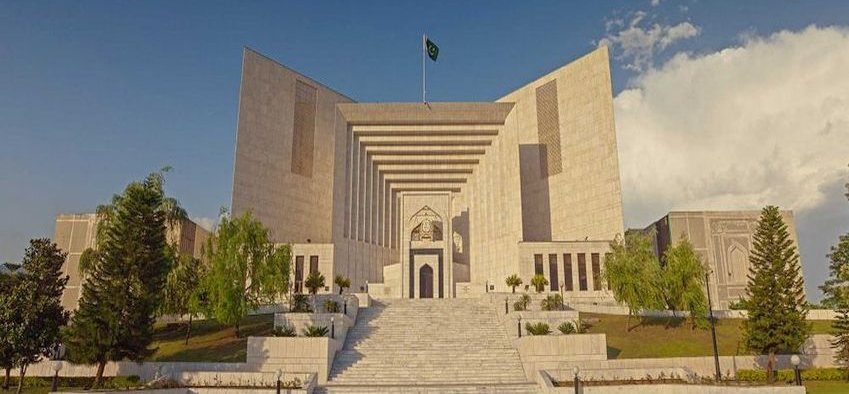Mere Delay in Trial Proceedings or conclusion of appeals should not justify a Reduction in Punishment in Heinous Nature of the Crime --- Supreme Court of Pakistan
Islamabad 28-09-2024: In a landmark decision, the Supreme Court of Pakistan altered the death sentence of Ghulam Rasool to life imprisonment in a 24-year-old murder case. The judgment was delivered by a three-member bench comprising Mr. Justice Jamal Khan Mandokhail, Ms. Justice Musarrat Hilali, and Mr. Justice Syed Hasan Azhar Rizvi, with the latter offering a dissenting opinion.
The case, which stemmed from an FIR (No. 51/2000) registered at Police Station Samundri, District Faisalabad, involved the murder of Farman Ali. Ghulam Rasool, the appellant, was accused of firing multiple shots at the deceased, leading to his death. The initial trial ended with a conviction and death sentence in 2008, which was subsequently upheld by the High Court.
The appellant’s conviction was based primarily on the testimony of a single eyewitness, Muhammad Asghar (PW-9), as the other eyewitnesses were either not presented or had passed away. The Investigating Officer (PW-10) testified that the FIR was registered based on the complainant’s written statement, which was disputed due to a significant delay in filing the FIR. Moreover, the weapon recovery could not be linked to the crime as no forensic report was obtained.
In its judgment, the Supreme Court of Pakistan observed that the prosecution failed to prove the motive behind the murder or establish premeditation, as the incident appeared to be a sudden altercation. The Court further noted that the long period of incarceration — approximately 18 years including time spent in the death cell, constituted a mitigating circumstance justifying a lesser sentence. The majority decision, authored by Mr. Justice Jamal Khan Mandokhail, altered the death sentence to life imprisonment under Section 302(b) of the Pakistan Penal Code (PPC) with the benefit of Section 382-B of the Criminal Procedure Code (CrPC).
Mr. Justice Syed Hasan Azhar Rizvi dissented from the majority opinion, arguing that the appellant’s actions warranted the death penalty. He noted that the appellant not only killed Farman Ali but later also murdered the complainant (Haji Muhammad Ishaq) and his son Mushtaq Ahmed during the trial of the original case. Mr. Justice Syed Hasan Azhar Rizvi cited several precedents to emphasize that delays in trial proceedings and hearings should not be considered mitigating factors, and the heinous nature of the crime demanded the maximum punishment.
The dissenting opinion referenced notable case laws, including Muhammad Hassan Vs. The State (1973 SCMR 344), Shah Muhammad Vs. The State (PLD 1973 SC 332), and Bakshish Elahi Vs. The State (1977 SCMR 389), to argue that mere delay in trial proceedings or conclusion of appeals should not justify a reduction in punishment.
The majority judgment, on the other hand, considered the long duration of the appellant’s detention, his extended stay in the death cell, and the uncertainty surrounding his exact role in the incident as substantial grounds to reduce the sentence.
The Supreme Court of Pakistan final verdict maintains Ghulam Rasool’s conviction under Section 302(b) PPC but reduces his sentence from death to life imprisonment. The Court emphasized the principle that mitigating circumstances, such as prolonged detention and absence of premeditation, can play a crucial role in determining the final sentence.
This decision reflects the judiciary’s evolving approach to capital punishment, taking into account broader human rights considerations and ensuring that justice is tempered with mercy in the context of long-standing trials and uncertain evidence.
Legal experts believe that this judgment will set a precedent for future cases where similar mitigating circumstances are involved, possibly leading to a reevaluation of the death penalty in cases lacking clear evidence of premeditation or where the accused has spent considerable time in prison.
Powered by Froala Editor








